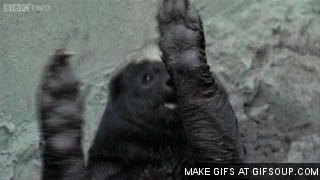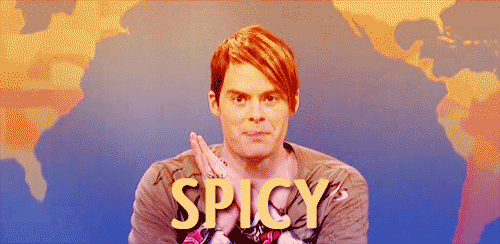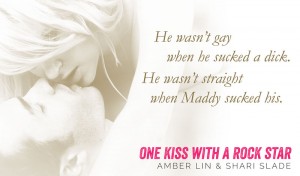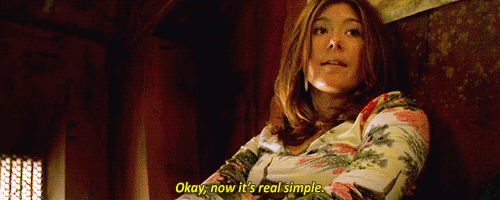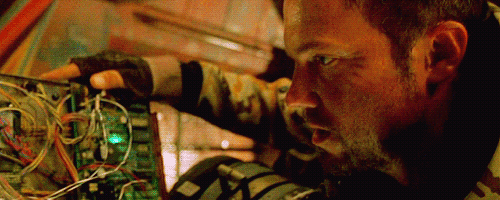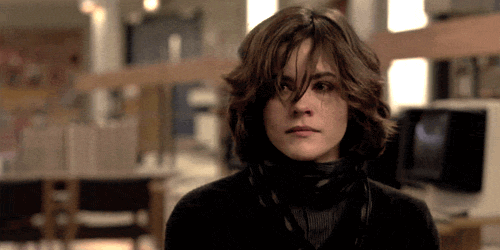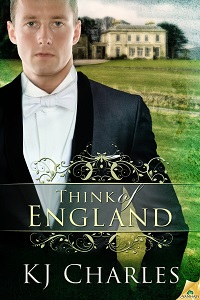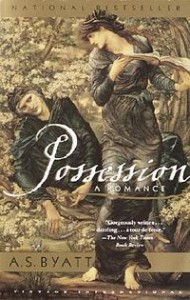I spent the last five or so days at two conventions in Chicago: GayRomLit, and the Kinky Kollege Homecoming. Both were fun, and I had an awesome time meeting new people and reconnecting with friends, not to mention getting to spend time in Chicago while the weather was perfect (bonus: all the canoodling with Sarah Frantz).
But here is the thing about GRL and the Kinky Homecoming. One of these cons wasn’t a particularly queer-friendly space, and involved a lot of sexual fetishization I was sometimes uncomfortable with…and the other was a kink convention.
It’s been a Very Queer Month for me, between Queer Romance Month and GRL and other things. Although I’m completely out as queer in my personal life, I’m also divorced from a guy, have two kids, and don’t particularly flag as queer—so most people’s default assumption about me is that I’m straight, because that is just most people’s default assumption, period. And since I usually write het (I have no idea why, that’s just what usually comes out when I start typing), the same is generally true in my professional life. Not through any design or intent on my part, I get the benefit of a lot of straight privilege most of the time, and one of the obvious benefits of privilege is not having to think about things from the perspective of the non-privileged groups. So it’s been interesting this month to shift my focus a bit and deliberately spend some time thinking about issues and challenges relevant to queer romance and queerness in general. And it’s made me realize that I probably have been letting the convenience of borrowed privilege keep me from expressing an important part of myself. It feels good to have a voice, to demand to be heard as who I am, not who people assume I am. That shouldn’t be only a once-a-year experience.
I went to GRL hoping to keep that theme going—to go ahead and let myself be queer, be seen as queer, and maybe find some spaces where that was not only tolerated but celebrated. I really wanted GRL to be a space like that, and I was disappointed that it wasn’t. It was a splendid event in many ways, with a lot of great talks by a lot of great authors, and I had a lot of fun (I got to spend time with some of the Riptide Publishing folks I hadn’t met before, and they are all delightful!). But it was very much a space for writers and readers of m/m…and that’s just not the same as an LGBT/queer-friendly space.
Our own AJ Cousins spent some time talking about GRL on her blog (she was there longer and did more) so check out her post if you’re interested in further deets about the con itself. My own takeaway was pretty personal and had less to do with what I saw at the con, and more to do with what I didn’t see there: I saw room for “gay” (m/m) voices, but I didn’t really see a venue for queer voices. And I saw a lot of fetishizing of m/m sex, in particular. If you name events things like “Cockwalk” or “Sausagefest,” it’s really hard to then claim you’re primarily interested in giving marginalized orientations a voice in romance fiction; you’re focusing on sex, not romance. Instead of saying, “the important thing is the relationship, not the genitals of the people having it,” you’re literally showing that the important thing is the phalluses. Especially since there was no “Fix-Your-Own Fish Taco Night” or “Ace Awareness Bingo” for balance.
I don’t lay all this on GRL, of course. They’re just bringing together existing writers and readers. The publishers are still perpetuating this focus on m/m marketed to primarily straight female readers. Samhain sponsored the Sausagefest. Carina press recently had a “pride month” submission call where they name-checked “the LGBT community” at the top but then asked for exclusively m/m submissions. That isn’t pride (sorry, Carina); that’s an unhappy combination of fetishization (of m/m) and erasure (of every other queer identity under the LGBTQUIA umbrella that “pride” is supposed to apply to).
Publishers are businesses, and they want to acquire what they can sell. Sadly, a lot of publishers tend to lack vision regarding what could sell if they marketed it more widely. Twenty years ago, did any of them imagine they’d have a solid and growing market in m/m? Of course not. So there is progress, even if it’s slow and incremental (AJ mentions this, too, by the way—she attended a panel where somebody asked about interest in more non-m/m queer pairings, and over half the audience raised their hands, so I think there’s definitely hope). But that doesn’t really lessen the sting of being queer and seeing “pride” and thinking, “yay, maybe that means more books about people like me,” and then finding that—once again, and pretty much as always—I might as well not exist in the eyes of most publishers (Riptide is a glorious exception, and I’m proud to edit for them). Or in the eyes of the GRL organizers.
I probably wouldn’t have been struck so much by the “this isn’t actually a space that celebrates me” quality of GRL if I hadn’t also attended the Kinky Kollege Homecoming that weekend, and been struck by how very much that event was a safe, welcoming space for queer voices of all kinds. Trans people, gay dudes, lesbians, poly/leather household groups, whatever. All the identities, all the orientations. Everybody doing their thing and being accepted and celebrated, inclusivity instead of exclusivitiy. And it was absolutely delightful, and just such a relief. And okay, sure, like some of these events do, this one leaned toward maleDom/femsub combos (less of a supportive vibe for femDoms, particularly for the few femDom/malesub pairs in attendance). And there are kinks not everybody gets, so there are always going to be conversations about that. So it wasn’t perfectly balanced or anything. But the conversations were respectful and inclusive of all the perspectives involved. The fetishes were presented as options everybody was perfectly free to take, leave, sample, without value judgments. And overall, in many ways, the convention that was actually about fetishes was engaging in…less fetishization than the convention about romance books.
And no erasure. And far fewer representations of phalluses.
For me, the openness of the kink conference was a hopeful thing, because it proved such a thing is possible. That vibe is what cons like GRL (or cons in general) could aspire to. That openness to different perspectives is what publishers could aspire to. To reflect all the options out there, rather than focusing nearly all the attention on one “norm,” then allowing a very narrow subset of the marginalized groups in to play on a limited basis and calling that diversity. The open, inclusive model is what GRL could become, and I think they’re off to a great start. After that…RT? And after that, obviously, world domination.
Blog posts are supposed to end with thoughtful questions to prompt discussions, but I’m the worst at that, so…insert your own thoughtful question here, I guess. Something-something-did you go to GRL, what did you think of the Cockwalk-something-something-sure, ask me about the kink con!-something?

